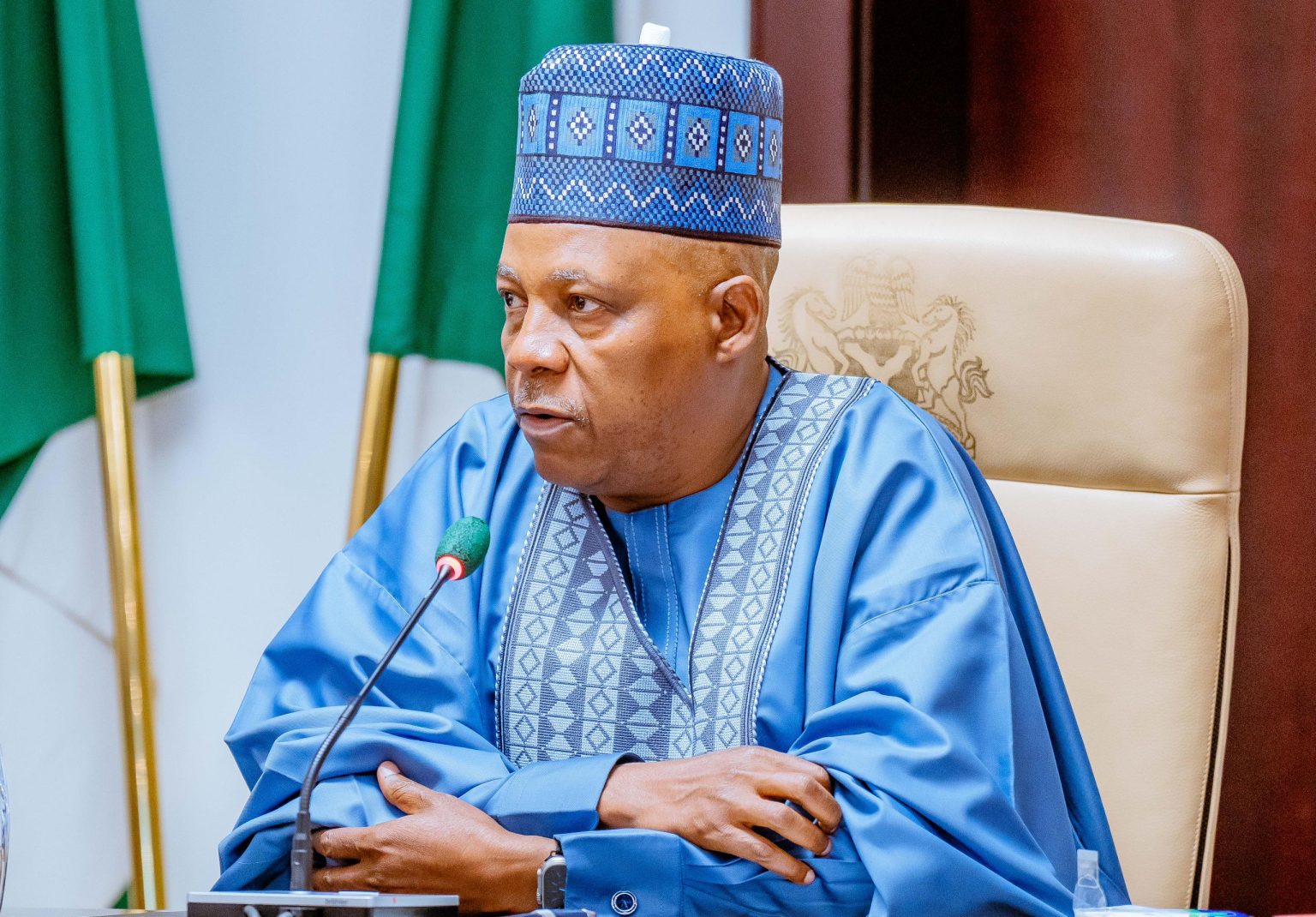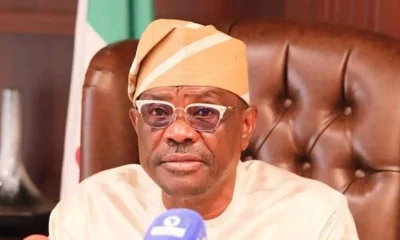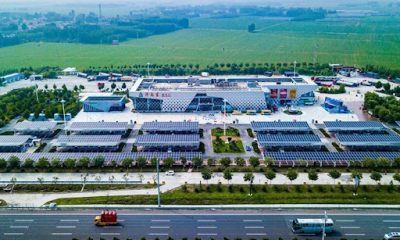News
To ensure that the global economy grows on right track
By Huan Yuping, People’s Daily
Recent reports issued by the United Nations (UN), the International Monetary Fund (IMF) and other organizations pointed out that the world economy will face greater downward pressure and increasing risks of recession because of the tightened monetary policies adopted by major economies such as the United States and Europe, geopolitical intentions, and continuous food and energy crises.
Faced with challenges, the international society is in urgent need to improve the effectiveness of global economic governance. In particular, major economies should enhance macroeconomic policy coordination, jointly contribute to safeguarding an open world economy and make concerted efforts to maintain long-term and stable economic development in the post-pandemic era.
To balance inflation control and stabilizing growth is a prominent challenge facing the world economy this year.
Some reports believe that high inflation, which has bothered developed economies, is not likely to be completely coming down this year, so these economies’ will keep tightening their monetary policies, which increases the risk of economic recession.
The IMF attributed the possible slowing growth this year to advanced economies, whose growth is projected to decline from 2.7 percent in 2022 to 1.2 percent in 2023.
Advanced economies’ maintaining deflation would create negative spillover effects, which might bring higher debt and financial risks to emerging markets and developing countries.
Growing trend of unilateralism and protectionist policies adopted by a few countries remain another major challenge facing the world economy.
For political purposes, a few major countries that are of huge influence over the world economy, have long followed irresponsible policies and measures that are against the market law and hinder cooperation and development. It triggered concerns from the international community that the world economy, which is in sluggish recovery, may face higher risks if such practice continues.
A severe fragmentation of the global economy after decades of increasing economic integration could reduce global economic output by up to 7 percent, but the losses could reach 8-12 percent in some countries, if technology is also decoupled, the International Monetary Fund said in a new staff report.
IMF Managing Director Kristalina Georgieva noted that economic integration has helped billions of people become wealthier, healthier, and better educated. “This peace and cooperation dividend should not be squandered”.
Modern history reminds the world that major countries should practically take their responsibilities and enhance mutual coordination, which is of vital importance for the world economy to maintain stable progress amidst raging torrents.
At present, it is widely expected around the world that a few major countries should reclaim their sense of responsibility and play a constructive role in promoting the strong, sustainable, balanced and inclusive growth of the world economy.
The world economy has come to a crossroads. Only through enhanced coordination and cooperation can its anti-risk capability be raised.
It’s important to see that this round of inflation has multiple reasons. Apart from the supply-side factors, the world needs to enhance international cooperation, address both the supply and demand sides, fix industrial and supply chains and pay close attention to energy and food security.
While controlling inflation, advanced economies should work to reduce the negative spillover effects caused by their adjustment in monetary policies and practically safeguard the stability of the international financial system.
Building an open world economy serves the common interests of the international society. All parties should build consensus and make joint efforts. Major countries, in particular, should maintain the stability of the global economic system, rules and foundation with concrete actions, rather than taking the lead to hinder international economic cooperation or divide global economy.
Crises and opportunities always emerged simultaneously in the history of world economy.
While effectively coping with risks, countries should take active and appropriate management measures to release more benefits of economic globalization and to rebalance the process of economic globalization.
They should focus more on development issues, jointly work to make global development more inclusive, beneficial to all and resilient, and accelerate the implementation of UN 2030 Agenda for Sustainable Development.
They should also strengthen international cooperation on tackling climate change and push for a comprehensive green transition in economic and social development.
As the world’s largest economy, China is picking up speed in its own economic recovery and committed to improving global economic governance. The country will keep injecting confidence and positive energy into global economic development.
The historical trend of openness and development will not reverse course, and the world’s shared desire to meet challenges together through cooperation will remain as strong as ever.
All parties should join hands with each other and proceed with confidence, so as to ensure that the global economy grows on the right track.
News
TCN Acknowledges 7th Grid Collapse in 2024

The Transmission Company of Nigeria (TCN) has reported its seventh partial grid collapse in 2024. Despite the recurring issue, TCN’s General Manager of Public Affairs, Ndidi Mbah, reassured the public that efforts to restore power are well underway, with about 90% of substations receiving bulk power.
Mbah noted that the Azura Power Station initiated the grid recovery, although a minor setback occurred. However, power supply has been restored to the Abuja region and other key distribution centers. The Ibom Gas Generating Station remained unaffected, continuing to supply power to the South-South region.
An investigation into the cause of the collapse will commence once full grid restoration is achieved.
News
Jigawa Tanker Tragedy: Shettima, First Lady Mourn Victims, Pledge Federal Support

Vice President Kashim Shettima has expressed deep sorrow over the tragic tanker explosion in Jigawa State, which claimed over 100 lives. In a statement issued by his media aide, Stanley Nkwocha, Shettima, on behalf of President Bola Tinubu, extended condolences to the affected families, praying for strength and comfort in their time of grief.
Shettima assured the public that the federal government is mobilizing resources to support the injured and assist those affected. He has directed the immediate deployment of the National Emergency Management Agency (NEMA) to provide aid. The Vice President also stressed the need for a review of fuel transportation safety protocols to prevent future incidents.
In a separate statement, First Lady Oluremi Tinubu offered her condolences to Jigawa Governor Umar Namadi and the people of Jigawa, praying for peace and comfort for the families affected. She called the incident “unfortunate” and extended prayers for the recovery of the injured and the repose of the souls lost in the tragedy.
News
Nigeria Customs Intercepts Arms, Ammunition Worth N9.5bn Over Six Years

The Nigeria Customs Service (NCS) has revealed that it intercepted a total of 10,598 pieces of arms and 114,929 rounds of ammunition valued at N9.58 billion over the past six years. Comptroller General of Customs, Bashir Adewale Adeniyi, made this disclosure during a press conference on enforcement activities in Zone A.
Adeniyi highlighted that 60% of these seizures occurred in 2023, reflecting the Customs’ increased efforts to curb arms smuggling. He also mentioned that recent operations such as Operation Whirlwind and Operation Swift Sting are part of a strategic response to tackle evolving smuggling tactics.
In addition to arms seizures, the Customs CG announced the largest pangolin scale seizure since 2020, with 9,493 kg of scales confiscated in collaboration with the Wildlife Justice Commission. The joint operation led to four arrests across Kano, Kaduna, and Lagos. The NCS continues to intensify efforts against wildlife trafficking, targeting supply routes in northern Nigeria and border areas.
-

 Business14 hours ago
Business14 hours agoOkpella Monarch: Obaseki Ratified Kingmakers Decision, End 5years leadership Vacuum
-

 Banking10 hours ago
Banking10 hours agoFree Food Saga: Akpabio quoted out of context-CSO
-

 Foreign15 hours ago
Foreign15 hours agoSci-tech innovation fuels China’s high-quality development
-

 Entertainment7 hours ago
Entertainment7 hours agoDavido Declares ‘Timeless’ His Best Album
-

 Entertainment7 hours ago
Entertainment7 hours ago‘Adire’ Secures Four Nominations at the Best of Nollywood Awards
-

 Business7 hours ago
Business7 hours agoWike Urges Nigerians to Pay Taxes for Improved Social Services
-

 Foreign9 hours ago
Foreign9 hours agoQinling Mountains better safeguarded with comprehensive digital platform
-

 Foreign9 hours ago
Foreign9 hours agoExpressway service station in Shandong achieves carbon neutrality






